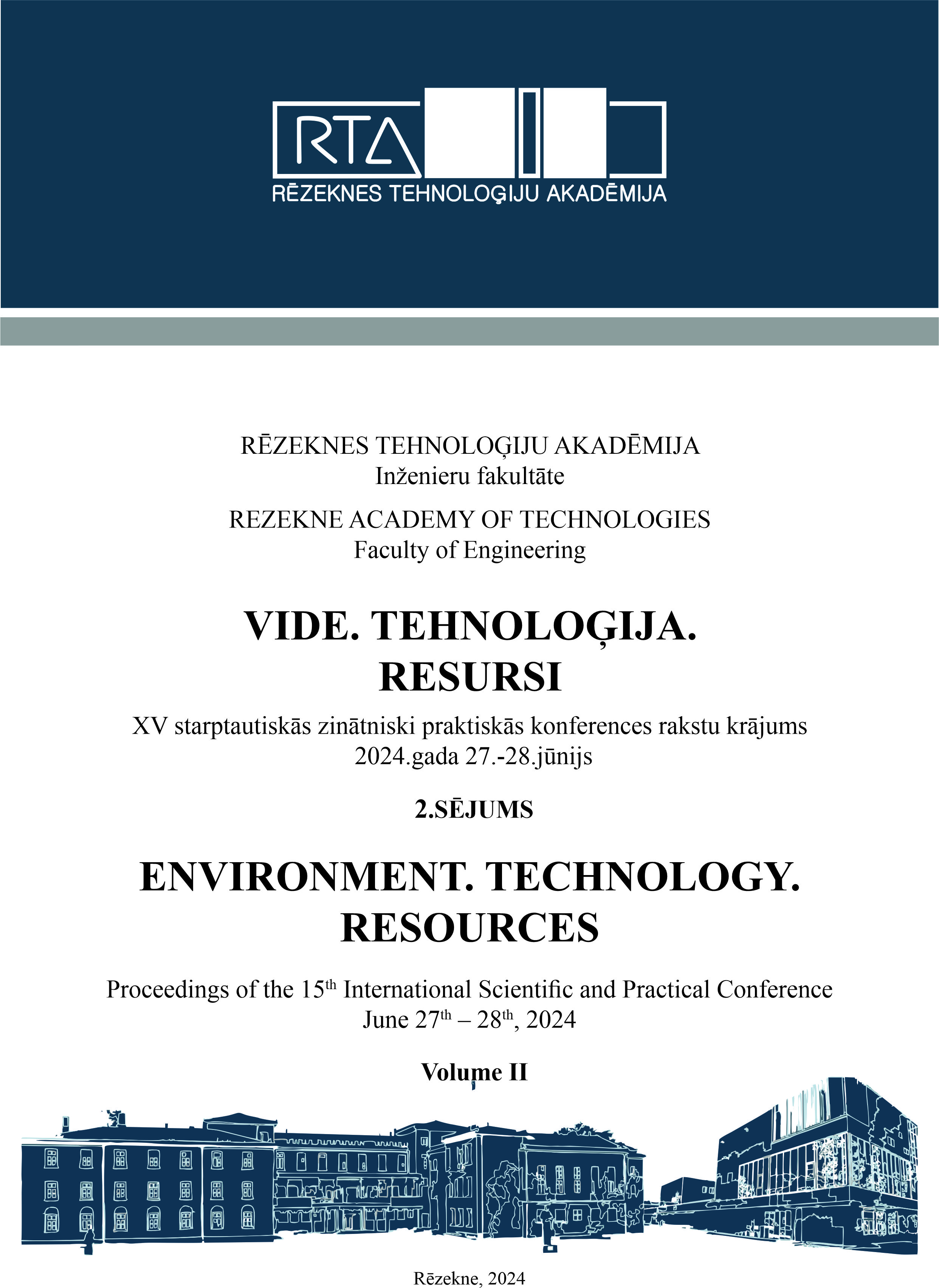APPLYING THE PYTHON PROGRAMMING LANGUAGE AND ARDUINO ROBOTICS KITS IN THE PROCESS OF TRAINING FUTURE TEACHERS OF COMPUTER SCIENCE
DOI:
https://doi.org/10.17770/etr2024vol2.8026Keywords:
Arduino; Python; STEM education; Arduino programming; computer science teacherAbstract
The article explores the possibilities and advantages of applying the Python programming language for using Arduino robotics kits in the process of training future computer science teachers in pedagogical institutions of education. Considerable emphasis is placed on analyzing the principles of operation of simple programs and devices. This analysis visualizes the possibilities of using the Arduino platform and Python libraries to create robots that can be implemented in education and everyday life. The authors have presented a working model of a robot built and programmed on the basis of Arduino components to measure humidity in computer laboratories and develop automatic plant irrigation systems to maintain appropriate conditions in classrooms. They also provide an example of integrating the learning of the Python programming language with the use of Arduino robotics kits. This method aims to enhance the quality of training for future computer science teachers, broaden their methodological toolkit, and equip them with the ability to teach students using innovative methods. The study's results and the developed teaching materials aim to increase students' interest in STEM education and prepare a new generation of computer science teachers for the challenges of the modern technological world. This will expand their methodological arsenal and develop their ability to use integrated technical, engineering, and mathematical solutions to solve theoretical and practical problems. This study can serve as a guide for popularizing the use of Arduino and Python in educational institutions. It may encourage future computer science teachers to introduce STEM and practical teaching methods, which can contribute to better student learning and improve the quality of professional education in the field of information technology. The study presents opportunities for utilizing modern digital technologies in vocational education and encourages interest in STEM education among computer science teachers and students. This contributes to the development of a new generation of engineers and technology leaders. Further research could focus on developing targeted training courses and methods for integrating the Python programming language and Arduino robotics kits into STEM education. It is crucial to create interdisciplinary STEM courses with the involvement of computer science, physics, mathematics, and vocational education teachers in the IT industry.
References
L. M. Hrynevych, N. V.Morze, V. P.Vember, and M. A. Boyko, “The role of digital technologies in the development of the STEM education ecosystem”, ITZN. 83, is. 3, pp. 1–25, June 2021.
T . P. Kobylnyk, O. V. Sikora, V. B. Zhydyk, and O. V. Sharan, “Python as a means for teaching the basics of algorithmization in general secretary education institutions”, Information Technologies and Learning Tools, 89(3), pp. 16–32. 2022, https://doi.org/10.33407/itlt.v89i3.4896
STEM education: preparing for the work of the future: report. April 2012. [Online]. Available: http://www.jec.senate.gov/public/_cache/files/6aaa7e1f-9586-47be-82e7-326f47658320/stem-education---preparing-for-the-jobs-of-thefuture-.pdf.
V. Boychuk, V. Umanets, and O. Boychuk, “Innovative technologies for training future skilled workers in the service sector in a vocational education institution”, Modern Information Technologies and Innovation Methodologies of Education in Professional Training Methodology Theory Experience Problems, pp.140–146, 2020.
B. Rozputnia, L. Shevchenko, and V Umanetz, “Creating a “Smart” computer science classroom at university”, Automation of Technological and Business Processes, 15(2), pp. 72-75, 2023.
L. S. Shevchenko, V. O. Umanets, and B. M. Rozputnia, “The use of the ARDUINO platform in the training of computer science teachers on the principles of STEM learning”. Electronic scientific professional publication “Open Educational E-SETTING of the Modern University”, 15, pp. 130–138, 2023.
K. Zachariadou, K. Yiasemides, and N. Trougkakos, “A low-cost computer-controlled Arduino-based educational laboratory system for teaching the fundamentals of photovoltaic cells”, European Journal of Physics, vol. 3, № 6, 2012. https://doi.org/10.1088/0143-0807/33/6/1599
H. K. Kondaveeti, N. K. Kumaravelu, S. D. Vanambathina, S. E. Mathe, and S. Vappangi. A systematic literature review on prototyping with Arduino: applications, challenges, advantages, and limitations. Comput. Sci. Rev.40, May 2021. https://doi.org/10.1016/j.cosrev.2021.100364
E. Lee. “A meta-analysis of the effects of Arduino-based education in Korean primary and secondary schools in engineering education”, European Journal of Educational Research, 9(4), pp.1503–1512, 2020. https://doi.org/10.12973/eujer.9.4.1503
Downloads
Published
Issue
Section
License
Copyright (c) 2024 Vitalii Kyslitsyn, Liudmyla Shevchenko, Volodymyr Umanets, Lina Sikoraka, Yaroslav Angelov

This work is licensed under a Creative Commons Attribution 4.0 International License.



